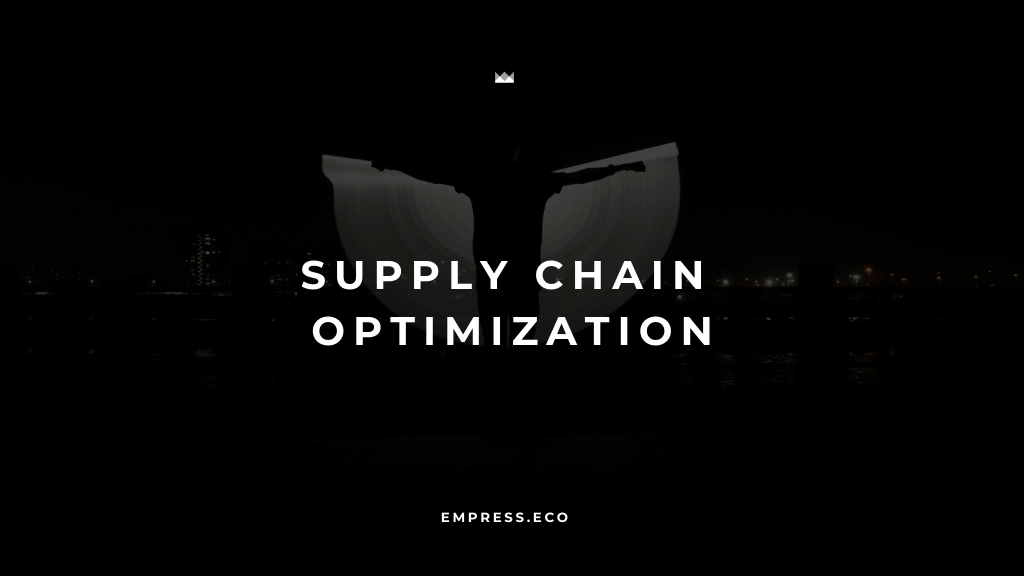The pressure to stay competitive and efficient is unrelenting. Companies are constantly seeking ways to streamline operations, reduce costs, and improve overall performance. This is where operations consulting comes into play. Operations consulting provides expert guidance to businesses, helping them optimize their operations by identifying inefficiencies, enhancing processes, and integrating new technologies. By focusing on key areas like process improvement, supply chain management, and technology integration, operations consultants enable organizations to achieve better performance and sustained growth.
In this comprehensive guide, we'll explore the key benefits of operations consulting, delve into the strategies for successful implementation, and discuss the challenges businesses may encounter along the way.
The Value of Operations Consulting
Operations consulting is about more than just fixing problems; it’s about proactively identifying opportunities to enhance the way a business operates. This expertise-driven approach allows companies to refine their processes, optimize resources, and ultimately improve their bottom line.
1. Process Improvement
At the heart of operations consulting lies process improvement. Every business has processes that are either outdated, inefficient, or both. Operations consultants bring a fresh perspective to these processes, identifying areas where improvements can be made.
For example, a manufacturing company might discover that its production line has bottlenecks that are slowing down output. An operations consultant would map out the current process, analyze data, and recommend changes that could streamline production, reduce downtime, and increase overall efficiency. By optimizing these processes, businesses can boost productivity, reduce operational costs, and enhance the quality of their products or services.
2. Supply Chain Management
Supply chain management is another critical area where operations consulting can make a significant impact. A well-managed supply chain is essential for ensuring that products are delivered on time, at the right cost, and in the right quantities. Operations consultants work with businesses to improve logistics, reduce supply chain costs, and enhance delivery times.
For instance, a retail company might struggle with high inventory costs due to overstocking or delayed shipments affecting customer satisfaction. An operations consultant could analyze the supply chain from end to end, identify inefficiencies, and implement strategies to optimize inventory management, streamline logistics, and improve supplier relationships. The result is a more efficient supply chain that supports business goals and enhances customer satisfaction.
3. Cost Reduction
In any business, managing costs is crucial to maintaining profitability. Operations consultants play a vital role in helping companies identify areas where costs can be reduced without sacrificing quality. This often involves a detailed analysis of current expenditures, procurement processes, and operational practices.
For example, a company might be spending excessively on raw materials due to a lack of competitive supplier contracts. An operations consultant could renegotiate contracts, explore alternative suppliers, or recommend bulk purchasing strategies that reduce costs. By focusing on cost reduction while maintaining or even improving quality, businesses can achieve better financial health and reinvest savings into growth initiatives.
4. Lean Operations
Lean management techniques are designed to increase operational efficiency by eliminating waste and focusing on value-added activities. Operations consultants are well-versed in lean methodologies and can help businesses implement these practices to optimize their operations.
For example, in a service industry, an operations consultant might identify unnecessary steps in the customer service process that add time but not value. By streamlining these processes and removing non-essential tasks, the business can serve customers more efficiently, reduce wait times, and improve overall service quality.
5. Quality Management
Quality management is a critical aspect of business operations that directly impacts customer satisfaction and brand reputation. Operations consultants help businesses enhance their quality management practices to ensure that products and services consistently meet or exceed customer expectations.
For instance, a manufacturing company facing high defect rates might benefit from a consultant’s expertise in quality control processes. The consultant could implement new testing procedures, employee training programs, or quality assurance protocols that reduce defects and improve product reliability. This focus on quality management not only improves customer satisfaction but also reduces costs associated with returns, repairs, and customer complaints.
6. Employee Engagement
A company’s employees are its most valuable asset, and their engagement levels directly impact productivity and operational success. Operations consultants often work on initiatives aimed at improving employee engagement, which can lead to higher retention rates and increased productivity.
For example, an operations consultant might introduce a new employee recognition program or suggest changes to the workplace environment that enhance job satisfaction. By fostering a positive work culture and engaging employees in the company’s mission, businesses can improve performance and drive long-term success.
7. Technology Integration
In today’s digital age, integrating new technologies is essential for staying competitive. Operations consultants guide businesses through the process of adopting and implementing new technologies that streamline operations and improve response times.
For example, a logistics company might struggle with outdated tracking systems that lead to delays and inaccuracies. An operations consultant could recommend and implement advanced logistics software that provides real-time tracking, automated updates, and data analytics. This technology integration not only improves operational efficiency but also enhances customer satisfaction by providing more accurate and timely information.
8. Performance Metrics
To truly optimize operations, businesses need to track their progress using key performance indicators (KPIs). Operations consultants help companies develop and monitor these metrics, providing a clear picture of how well their strategies are working and where improvements are needed.
For instance, a consultant might establish KPIs related to production efficiency, customer satisfaction, or cost savings. By regularly reviewing these metrics, businesses can make data-driven decisions that enhance their operations and align with their strategic goals.
Implementing Effective Operations Consulting
While the benefits of operations consulting are clear, successful implementation requires a structured approach that includes process mapping, stakeholder engagement, benchmarking, and change management. Here’s how to get started:
1. Process Mapping and Data Analysis
The first step in optimizing business operations is to map out current processes and analyze relevant data. Process mapping provides a visual representation of how tasks are completed within the organization, highlighting inefficiencies, redundancies, and bottlenecks.
For example, in a warehouse setting, process mapping might reveal that goods are being moved multiple times before they reach their final destination, adding unnecessary time and labor costs. By analyzing this process, an operations consultant can recommend changes that streamline the flow of goods, reduce handling, and improve overall efficiency.
Data analysis plays a critical role in this stage, as it provides the evidence needed to support recommendations. By examining metrics such as cycle times, error rates, and resource utilization, consultants can pinpoint specific areas for improvement and quantify the potential benefits of proposed changes.
2. Stakeholder Engagement
Engaging stakeholders at all levels of the organization is essential for the successful implementation of operational changes. Operations consultants must work closely with employees, managers, and executives to ensure buy-in and support for their recommendations.
For example, if a consultant recommends changes to a manufacturing process, it’s important to involve the workers who will be directly affected by the changes. By seeking their input and addressing their concerns, the consultant can foster a sense of ownership and cooperation, increasing the likelihood of successful implementation.
Effective communication and collaboration are key to overcoming resistance to change and ensuring that everyone in the organization understands the benefits of the proposed improvements.
3. Benchmarking and Continuous Improvement
Benchmarking involves comparing a company’s performance metrics against industry standards or competitors to identify areas for improvement. Operations consultants use benchmarking as a tool to set realistic goals and measure progress.
For example, a consultant might benchmark a company’s delivery times against industry averages to determine if there’s room for improvement. If the company’s performance falls short, the consultant can recommend strategies to bring it in line with or exceed industry standards.
Continuous improvement is a core principle of operations consulting. By embracing a culture of continuous improvement, businesses can ensure that they remain competitive and responsive to changing market conditions. This involves regularly reviewing performance metrics, seeking feedback, and making incremental changes that drive long-term success.
4. Change Management
Implementing operational changes can be disruptive, so it’s important to have a robust change management plan in place. Change management involves preparing, supporting, and helping individuals, teams, and organizations in making organizational changes.
For example, if a consultant recommends the implementation of new technology, change management practices might include training sessions for employees, regular updates on the progress of the implementation, and a support system for addressing any issues that arise.
Effective change management minimizes disruptions, reduces resistance, and ensures a smooth transition to new processes or technologies. It’s a critical component of any successful operations consulting engagement.
5. Balancing Cost and Quality
One of the challenges businesses face when optimizing operations is balancing cost reduction with maintaining or improving quality. While cutting costs is important, it should not come at the expense of the quality of products or services.
Operations consultants help businesses strike this balance by identifying areas where costs can be reduced without negatively impacting quality. For example, a consultant might recommend sourcing materials from a different supplier that offers the same quality at a lower cost, or streamlining a production process to reduce waste while maintaining product standards.
Achieving this balance is essential for long-term success, as it ensures that businesses can reduce costs while still delivering high-quality products and services that meet customer expectations.
Challenges and Considerations in Operations Consulting
While operations consulting offers numerous benefits, it’s not without its challenges. Businesses must be prepared to address these challenges to maximize the effectiveness of their consulting engagements.
1. Resistance to Change
One of the most common challenges in operations consulting is resistance to change. Employees may be reluctant to adopt new processes or technologies, particularly if they have been doing things a certain way for a long time.
Overcoming resistance requires effective change management and communication. Operations consultants must work closely with stakeholders to explain the benefits of the proposed changes, address concerns, and provide the support needed to facilitate a smooth transition.
2. Resource Allocation
Implementing operational changes often requires significant resources, including time, budget, and personnel. Businesses must be prepared to allocate these resources to support the initiatives recommended by operations consultants.
This might involve investing in new technology, hiring additional staff, or providing training for employees. While these investments can be substantial, the long-term benefits of optimized operations often outweigh the initial costs.
3. Measuring Success
Evaluating the impact of operations consulting can be complex, particularly when trying to quantify the benefits of process improvements or cost reductions. Businesses should establish clear metrics and use data-driven insights to assess performance improvements.
For example, if a consultant implements a new supply chain strategy, the company might measure success by tracking metrics such as delivery times, inventory levels, and customer satisfaction. Regularly reviewing these metrics helps ensure that the changes are delivering the expected results and allows for further adjustments as needed.
Conclusion
Operations consulting provides businesses with the expert guidance they need to optimize their operations and achieve better performance. By focusing on key areas such as process improvement, supply chain management, and technology integration, companies can enhance efficiency, reduce costs, and drive growth. As the business environment continues to evolve, effective operations consulting will be essential for maintaining a competitive edge and achieving long-term success.
Whether your business is looking to streamline processes, improve supply chain management, or integrate new technologies, operations consulting offers the expertise and insights needed to drive meaningful change. By embracing a proactive approach to optimizing operations, businesses can position themselves for sustained success in an increasingly competitive market.



